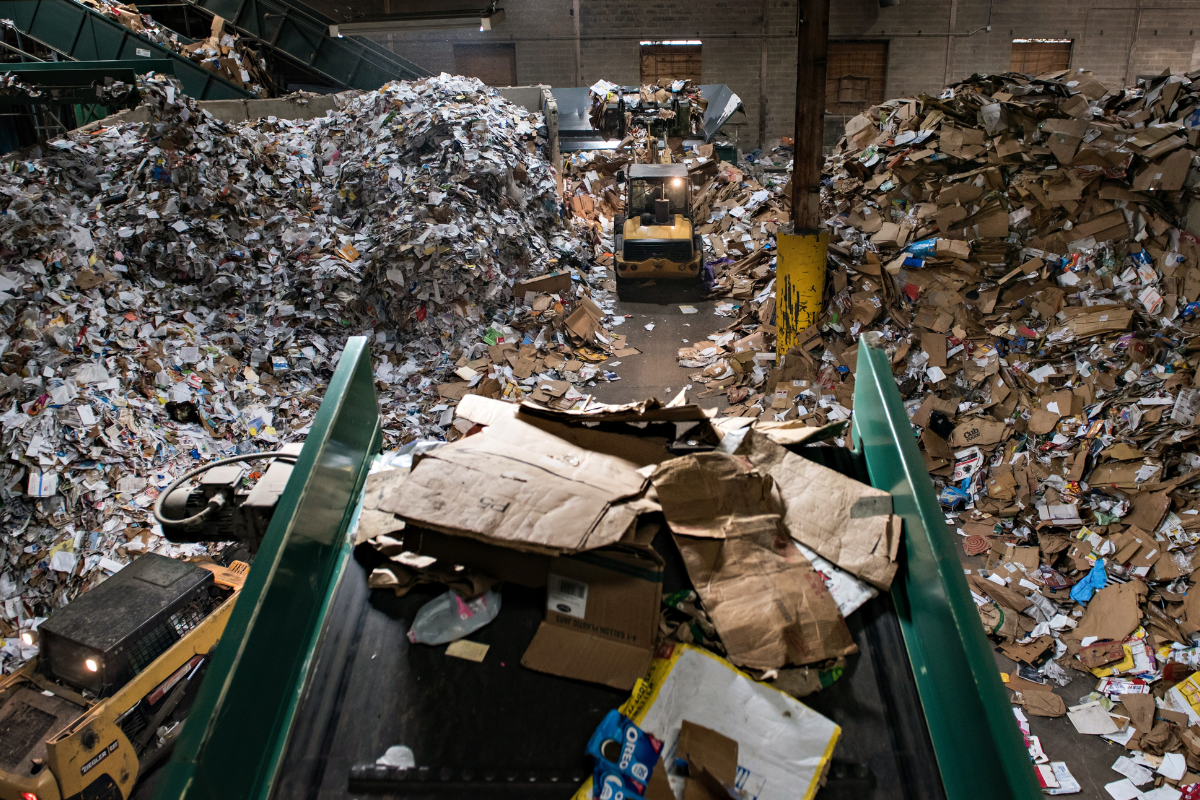
The Eureka Recycling MRF in Minneapolis will install several Machinex optical sorters in response to an increase in smaller plastic containers that have challenged the MRF’s ability to maintain quality. | Courtesy of Eureka Recycling
Minneapolis nonprofit MRF operator Eureka Recycling is seeing larger volumes of smaller plastics coming through its doors, creating challenges to maintain the same level of material quality. These changes spurred the company to plan substantial facility upgrades, a co-president said this week.
Eureka will receive a $10 million loan from Closed Loop Partners, American Beverage and the Minnesota Beverage Association, as well as a grant from The Recycling Partnership, the organizations announced this week. The MRF operator will use the financing to install new optical sorters and screens.
In a July 22 phone interview, Eureka co-president Miriam Holsinger said the facility will install three optical sorters on its fiber lines with this round of financing. In a second phase of the upgrade, the facility is planning to install a fourth optical sorter with a separate grant it is seeking from the Minnesota Pollution Control Agency.
The upgrades, which will be supplied by equipment manufacturer Machinex, have been in the works for multiple years, Holsinger said. They are a direct response to changes in the material stream in Minnesota, which mirror national shifts.
“We’ve been seeing less paper as people cut back on their newspaper subscriptions and magazine subscriptions,” Holsinger said. At the same time, the MRF is seeing more bottles, cans and single-serving plastic containers. The format of those single-serving containers is also changing: Holsinger gave the example of consumers moving away from buying a 32-ounce yogurt tub and instead buying a dozen 8-ounce containers.
The shift is toward “more plastics, smaller plastics that are a little bit harder to remove from the paper stream,” Holsinger explained.
This trend has posed a particular challenge when paired with declining fiber volumes, leading Eureka to hire additional manual sorters in order to keep up the facility’s quality.
In a statement, Closed Loop Partners, American Beverage and The Recycling Partnership said the “capital will support additional optical sorters to decrease contamination and increase the quality of recovered materials that can be made into new materials, including mixed paper and old corrugated cardboard, polyethylene terephthalate, aluminum, polyethylene and polypropylene.”
“Once the upgrade is completed in 2025, the new machines are estimated to increase the annual collection of PET and aluminum by 222 and 248 tons, respectively,” the organizations added.
Holsinger said Eureka will also upgrade its OCC screen, which will help the facility respond to an influx of cardboard boxes in smaller sizes. That trend has been emerging for several years, tied directly to e-commerce driving more OCC into residential bins and away from the large-format back-of-house retail generation.
The upgrades will begin in October and will be fully up and running in April. Eureka is strategizing the upgrades to minimize downtime, which is always a challenge for MRFs. The project will include two nine-day downtimes and two 21-day downtimes, during which material that typically goes to Eureka will go to other area MRFs through backup agreements.
Changes come against a backdrop of EPR emergence
Since Eureka has been planning the upgrades for multiple years, they were in the works long before Minnesota state lawmakers passed an extended producer responsibility for packaging bill this past spring. Eureka strongly supported the EPR bill.
That program will bring about sweeping changes to Minnesota’s recycling system, but they are a long way off: Cost reimbursement for municipal recycling programs doesn’t kick in until 2029, and – particularly important for MRFs – the requirement for producers to redesign their packaging to be recyclable doesn’t start until 2032.
Theoretically, the non-recyclable plastics that contaminate the fiber line will have less of a presence once the redesign requirement takes effect. But in the meantime, Holsinger said the additional optical sorters will help Eureka manage the volume of non-recyclable plastic that comes through its doors.
“It does set us up really well,” Holsinger said.
A version of this story appeared in Resource Recycling on July 23.